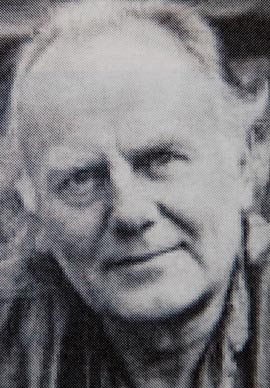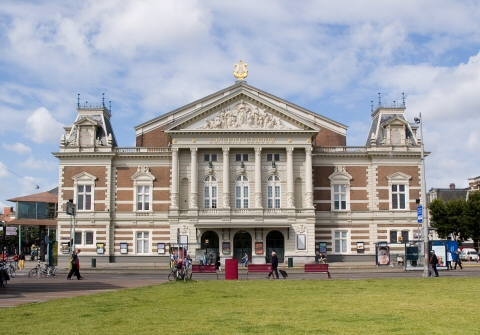
Sense's Reminiscences
by Sense de Jong
Bass/Baritone
- Geurt
- Tante Betje (by Sense)
- Tante Betje (by Truus)
- Miss Roozendaal
- Concert in Winschoten
- A baptism remembered
- My birdhouse
- War veterans
- Henk Smit - bass/baritone
- Stefan
- In memory of Herman - I
- In memory of Herman -II
- Remembering AK
- Our love for music
- Herman - Promoter of Christian Causes
- A Salem evening with Herman de Jong
- From Elsinore to Monschau
- A Danish Treat
- Glimpses of Thuringia and Saxony
- Domie and Hansie
- La Manche, Newfoundland
- Bermuda - Isle in the Sun
- 1932 and 1934
- 1940 - 1945
- Winschoten, Grace on the Venne
- 1948
- Johann Sebastian Bach
- From Generation to Generation
- Seven children and a harmonium
- K.P. - A Man of Enterprise
- Cuba and the tragedy of the MS St Louis
- It all began in Norwich, Ontario
Another site by Sense de Jong:
~ Hinne de Jong ~
A Chronicle
Sites by Henry de Jong:
~ Herman de Jong ~
Memorial
~ Newmaker Notes~
Writings, Pictures, Collections
~ AACS/ICS Niagara Conferences~
1970 - 1991
He is my wife's only brother, the eldest in the family. He's a professional singer and if you google "Henk Smit (Bass)," you can read his short biography.

In 2005, Henk Smit attained the age of 73. And when Corrie and I arrived from Canada on April 27 for a vacation, Henk had barely enough time to pick us up from Schiphol Airport. He was as busy as a beaver doing what he likes best, singing.
Already on Friday, April 29th, we went with Henk from his home in Watergraafsmeer (Amsterdam) on the Metro Train to " Centraal Station" (the central train station), then by ferry across the harbor, "Het IJ," to an industrial complex on one of the islands. There, in a large factory hall - with excellent acoustics - we saw and heard Henk's final performance of Jules Massenet's opera "Don Quichotte." He sang the lead role. It was quite an experience to see and hear the youthful cast (soloists and choir members) - Henk had coached most of them - perform their parts around this aging, tragic/comic figure, this veteran opera singer. No wonder that papers like Trouw carried raving reviews. Amazingly, I found out, this opera - sung in French- was one of the few large baritone roles Henk had never sung before.
Henk's musical journey
Born in 1932, Henk completed his basic studies in the Netherlands. He emigrated in 1951 with his parents and three sisters to Canada, settling in Sarnia, Ont. Applying his skills in different jobs he became well-known in the area for his remarkable voice. He sang solos in various churches and became a regular soloist in various productions put on by the Sarnia Polymer Glee Club.
During the late 1950s, however, he returned to the Netherlands and enrolled as a student at the Amsterdam Conservatory of Music. He proved to be a brilliant, gifted student. His debut as a bass came in 1961 and he has been successful ever since as a concert-,oratorio-, and opera singer.
Between 1961 and 1981 he sang mainly parts suited for his bass voice. But he became more and more enamored with singing music scores that called for a baritone. That year, 1981, was the start of his opera career. He has made numerous appearances in a big, varied repertory from Bach via Wagner to the modern composers. He has performed all over Europe, the Middle East and in the United States (New York, Detroit, Los Angeles, etc.).
Remembering the end of WW II
During the Spring of 2005, many special events took place in the Netherlands which focused on the 60th anniversary of the end of WWII and of Nazi oppression. Fitting on such an occasion would be a performance of Dimitri Shostakovich's Thirteenth Symphony, also called the "Babi Yar Symphony." This major piece is scored for orchestra, a male chorus and one soloist, a bass/baritone. By the time we arrived in Amsterdam, Henk had performed this magnificent work in, I believe, the City of 's Hertogenbosch, in southern Holland, close to Belgium..
Why is this symphony called "Babi Yar?" Doing some research, I found out that Babi Yar is a ravine close to Kiev in the Ukraine (Russia). This scene became the backdrop for the biggest murder action ever to be documentarily reported in history. In September, 1941, 34,000 Jewish men, women and children were summarily shot there by a special German SS company within 36 hours....
A critical situation
This mighty work was also scheduled to be performed during a matinee concert on Saturday, April 9, 2005, in Amsterdam's famed Concertgebouw (concert hall) by the Radio Philharmonic Orchestra, the male voices of the Dutch Radio Choir, all led by an English conductor, Mark Wigglesworth. The solo parts would be sung by Dutch bass/baritone Jan Hendrik Rootering.
But something happened that Saturday morning! Mr. Rootering called in sick at 9 a.m. stating he was unable to sing. This set off a series of feverish activities by the organizers. They urgently tried to locate the back-up singer, a man with the name Alexander Morozov, an Ukrainian.
Meanwhile, that same morning Henk Smit was rehearsing Massenet's "Don Quichotte," somewhere in Amsterdam. Suddenly, he got a call on his mobile from someone at the Concertgebouw. Henk was told that a friend of his in the orchestra had reminded the conductor that he knew of someone who had recently performed the "Thirteenth." Would Henk be willing to substitute for Mr. Rootering and come to the rehearsal now? Henk said he would, and prepared to leave.
But soon there was another call on his mobile. He was told: stay where you are, the back-up soloist has been found and is on his way. So, Henk went back to the rehearsal of Massenet's opera.
Yes, Mr. Mozorov had been found in Zurich, Switzerland. He said he'd leave immediately by plane and would arrive at 1430 hours at Schiphol airport. He was rushed from the airport to the Concertgebouw and met with Mr. Wigglesworth. To his consternation, the conductor found out that Mr. Mozorov's score was a different version from the one he had been rehearsing with the musicians. (Note: At least this was the reason given by the media. Mr. Mozorov may have had a score with him from a different publisher, something that is not uncommon. Perhaps Mr. Wigglesworth had other reasons for not allowing Mr. Mozorov to proceed). In any event, pandemonium ensued. What to do now?
Again, Henk got a call on his mobile. He immediately sensed this was very serious. He jumped on his old bike, still wearing his "Don Quichotte" outfit, and raced home to pick up his (correct) score. He ordered a taxi and was taken to the, for him familiar, Concertgebouw. He had a brief discussion with the conductor and his orchestra friend, Jan Zekveld, lent him his jacket. And, voila, he was ready to sing.!
A "sensational" performance
Meanwhile, the matinee performance had already begun. The program that afternoon listed the Shostakovich Symphony following the intermission. That afternoon, the Concertgebouw had a long - a very long - intermission. It was announced that not only the regular bass, Mr. Rootering, but also his back-up, Mr. Mozorov would be unable to perform that afternoon. Would the audience be patient while the organizers were trying to locate another baritone? After a while, it was announced that Dutch bass/baritone Henk Smit had agreed, on a moment's notice, to leave his "Don Quichotte" rehearsal, and come to the Concertgebouw.

"Concertgebouw" (photo credit: Leander Lammertink)
And so, without any rehearsals, after all that delay, the audience witnessed the conductor and Henk descend the stairs through the orchestra section onto the Concertgebouw stage. Henk told me later that the thunderous applause was deafening. The concert would be live on Dutch radio! Peter van der Lint, a music critic with Trouw - who was in his car driving to another concert - wrote in his column he suddenly heard the unmistakable voice of Henk Smit on his car radio. And he immediately regretted that he had decided against going to the Concertgebouw that afternoon. He listened with growing interest. Later he wrote in his column "What a tremendous performance!"
Henk related to me what had happened to him that afternoon. It had been, for him, an incredible scene. The standing ovation he received when taking his place on the podium was overwhelming.. He felt somewhat silly wearing his old clothes. But, at least, he wore a decent jacket. He felt his voice was in great shape. He knew the piece and he was going to go for it.
Later, he and I, at his home, listened to the CD recording he obtained from the technicians (he gave me a copy). I heard the applause and it was deafening! The "Thirteenth" of Shostakovich is a riveting, deeply moving piece of music. The story of "Babi Yar" is told by the male chorus and soloist. Again, I was so impressed with the awesome talent (and guts) Henk possesses. Henk said something happened at the end that had never happened to him before. The ecstatic, English conductor, drew him onto the conductor's podium during the long standing ovation, with the audience keeping up the bravos. Henk said it was unbelievable!
At the time of this writing (2005) , Dutch diva Henk Smit, bass/baritone , is in his 74th year, and still singing....
[an error occurred while processing this directive]